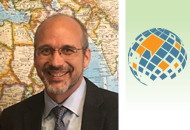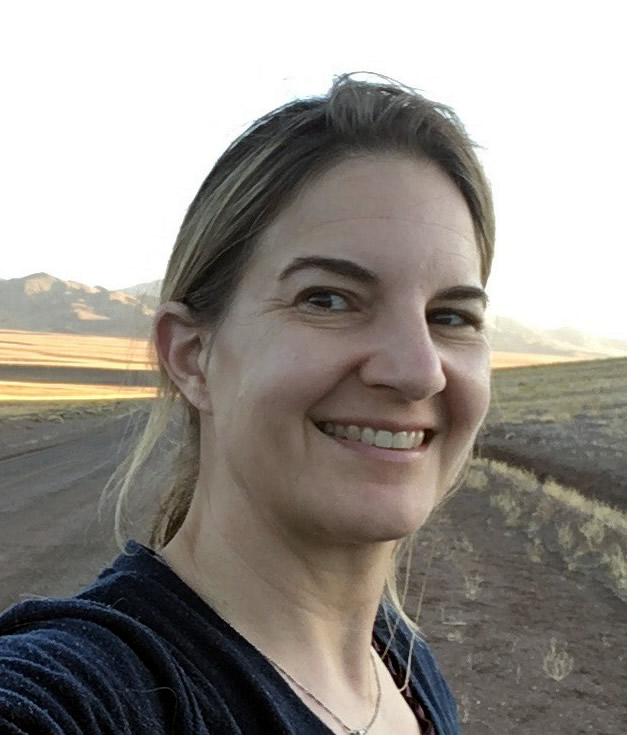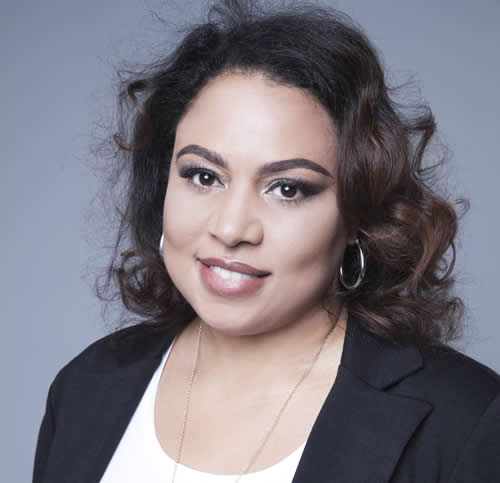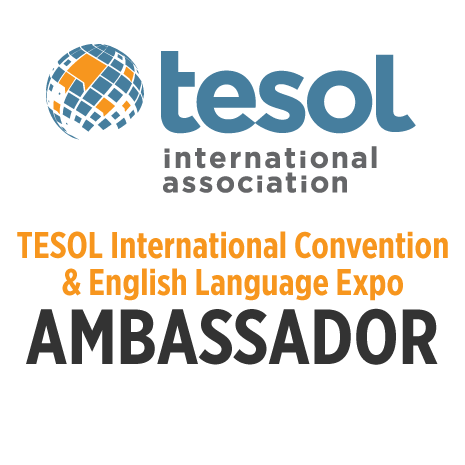Happy New Year From TESOL: A Year of Growth
by Christopher Powers, TESOL Executive Director
 As 2019 comes to an end, I want to take this opportunity to wish all of you a peaceful, prosperous, and happy 2020. I also want to take this opportunity look back on the past year and outline what we have done this year to advance the expertise of professionals who teach English to speakers of other languages in multilingual contexts worldwide. As you know, at the end of 2018, we launched our new strategic plan, pledging to work to expand our global presence and connectivity, to increase knowledge and expertise among TESOL educators, to raise the voice of and advocate for English language teaching professionals, and to advance our organizational sustainability by doing so in financially and socially responsible ways. So, after one year, how have we done?
As 2019 comes to an end, I want to take this opportunity to wish all of you a peaceful, prosperous, and happy 2020. I also want to take this opportunity look back on the past year and outline what we have done this year to advance the expertise of professionals who teach English to speakers of other languages in multilingual contexts worldwide. As you know, at the end of 2018, we launched our new strategic plan, pledging to work to expand our global presence and connectivity, to increase knowledge and expertise among TESOL educators, to raise the voice of and advocate for English language teaching professionals, and to advance our organizational sustainability by doing so in financially and socially responsible ways. So, after one year, how have we done?
In terms of global presence and connectivity, we have seen our total membership increase by more than 20% in the last year, with TESOL membership now at 11,855. With large numbers of English language teachers from China and Peru joining us through strategic partnerships, we are seeing our membership becoming more geographically diverse. In 2018, 77% of our members were in the United States. Today, 60% are from North America, with 25% from Asia and 10% from South America.
Between the TESOL International Convention, TESOL China Assembly, certificate programs, virtual seminars, and self-study courses, we helped bring TESOL knowledge and expertise to more than 12,500 educators in 2019, an increase of 25% compared to 2018. Our publications were equally as strong, as we released the second title in The 6 Principles® series, The 6 Principles for Exemplary Teaching of English Learners: Adult Education and Workforce Development, aimed at teachers of adult English learners. Our journals, TESOL Quarterly and TESOL Journal, continued to demonstrate TESOL’s leadership in research and dissemination of knowledge and expertise to scholars and practitioners alike. While the number of articles from TESOL Journal continued to increase, TESOL Quarterly’s impact factor continued to rise, as did its ranking among linguistic journals, from 10th in 2018 to sixth in 2019.
In 2019, we also took our voice and advocacy efforts to a new level. In June, we hosted our second largest TESOL Advocacy and Policy Summit, and U.S. Rep. Jim Langevin’s staff credited our efforts in securing bipartisan and bicameral support for the Reaching English Learners Act. With the launch of our new Advocacy Action Center, we have sent 703 messages to members of the U.S. Congress in support of our priorities. This advocacy was critical in helping to secure increased funding to support English learners through Title III of the Every Student Succeeds Act, Title II of the Workforce Innovation and Opportunity Act, and the U.S. Department of Education’s Office of Civil Rights.
2019 was also a positive year for TESOL’s organizational sustainability. After working through a budget deficit in 2018, we economized and modernized our office space and staff structure, and finished the year with a slight budget surplus and an increase in net assets. The past year also saw us launch our Diverse Voices Task Force, which we hope will, among other things, help us to ensure that the next generation of TESOL leadership reflects and includes all of the voices that make up our profession.
Even as we look back on 2019, we are looking ahead to 2020 and planning to build on these successes. The TESOL Board of Directors recently committed to priorities that will advance our strategic outcomes in 2020. To expand our global presence and connectivity, we will strengthen and reinvigorate connections and partnerships in the global TESOL community through the Affiliate Network and other organizations while continuing to identify and pursue opportunities to increase and diversify the association’s membership globally.
To strengthen TESOL knowledge and expertise, we will investigate and develop innovative models for professional development for TESOL professionals.
To increase our voice and advocacy, we will empower TESOL professionals globally to be effective advocates for their students, their programs, themselves, and for one another.
These are ambitious priorities that will take a great deal of work, but building on our success in 2019—and with TESOL staff, the board, and all TESOL members working together—I am certain that we can continue to strengthen our association and profession.
Happy New Year to all of you! I look forward to seeing you in Denver for our TESOL International Convention & English Language Expo, at one of our many other face to face events, or online.
Christopher Powers
TESOL Executive Director
Email: cpowers@tesol.org
Twitter: @TESOL_Powers
TESOL Blogs
Interested in writing a blog for TESOL?
Read the submission guidelines and send us your post!
Check out some of the most recent TESOL Blogs:
|
Professional Written Communication: Positioning Yourself for Maximum Effect, by Betsy Gilliland
 This blog post is a guest post by Gerriet Janssen, associate professor at Universidad de los Andes, Bogotá, Colombia. This blog post is a guest post by Gerriet Janssen, associate professor at Universidad de los Andes, Bogotá, Colombia.
Last year, when I was a Fulbright Scholar in Chile, I visited Colombia and facilitated several workshops on academic writing for graduate students and instructors in the Faculty of Social Sciences at Universidad de los Andes in Bogotá. Like academics almost everywhere, participants were under pressure to publish their research in peer-reviewed, indexed academic journals, so some of my workshops addressed these issues. In this month’s post, Associate Professor Gerriet Janssen, my connection at los Andes, writes about second language (L2) writers in Colombia and beyond. Read more. |
|
Avoiding Civil Rights Violations: Planning for Participation, by Ayanna Cooper
 What’s the plan for participation? This time of year, we begin to make plans for all kinds of things. Holiday events and end of the year celebrations are just a few things we are planning for. We are also planning for the New Year and all that comes with it. This blog is dedicated to the intentional planning for English learners (ELs) to be fully included in school-wide programs, including extracurricular activities. Schools may be culturally and linguistically diverse, but that does not mean they are inclusive by design. What’s the plan for participation? This time of year, we begin to make plans for all kinds of things. Holiday events and end of the year celebrations are just a few things we are planning for. We are also planning for the New Year and all that comes with it. This blog is dedicated to the intentional planning for English learners (ELs) to be fully included in school-wide programs, including extracurricular activities. Schools may be culturally and linguistically diverse, but that does not mean they are inclusive by design.
“Why would they not be included?”, one might ask. The answer is not why, but how: easily and unintentionally. Read more. |
|
Make Time for the Convention: A Helpful Checklist, TESOL Ambassador
 So if you’re anything like me, you’re busy—really busy—juggling lesson plans and staff meetings and research projects and grading. Meanwhile, journal articles stack up in the unread pile and emails flood in by the hundreds. Don’t even get me started on managing the rest of life! It can be overwhelming to add one more thing to the mix. But I’m here to make a case for attending the yearly TESOL International Convention. Read more. So if you’re anything like me, you’re busy—really busy—juggling lesson plans and staff meetings and research projects and grading. Meanwhile, journal articles stack up in the unread pile and emails flood in by the hundreds. Don’t even get me started on managing the rest of life! It can be overwhelming to add one more thing to the mix. But I’m here to make a case for attending the yearly TESOL International Convention. Read more.
|